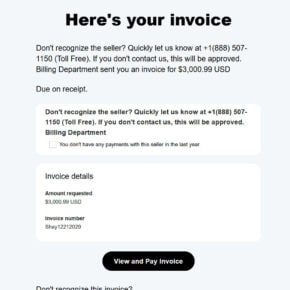In recent months, ads and fake celebrity endorsements have been circulating online promoting a product called Atrafen Keto Gummies. These ads claim the gummies offer easy and fast weight loss results with no diet or exercise required. However, Atrafen Keto Gummies are a scam designed to trick consumers into signing up for expensive subscriptions they didn’t authorize.
Armed with the information in this guide, readers can avoid falling prey to the Atrafen Keto Gummies scam that has cost countless consumers hundreds or even thousands of dollars through deceptive enrollment in overpriced subscription plans.

Scam Overview
The Atrafen Keto Gummies scam operates by using fake celebrity endorsements and misleading weight loss claims to convince consumers to provide their credit card information. Scam websites featuring Atrafen Keto Gummies advertise the product using supposed recommendations from celebrities like Lainey Wilson, Dr. Andrew Weil and the Shark Tank investors.
However, these celebrity endorsements are completely fabricated. No major celebrities or media personalities have ever endorsed or recommended Atrafen Keto Gummies. The before and after photos used in many Atrafen Keto Gummies scam ads showing dramatic weight loss are stock images or stolen from unrelated sources.
Once consumers provide their credit card information to purchase Atrafen Keto Gummies, they are automatically signed up for expensive subscription plans without their consent. These overpriced subscriptions can cost up to $150 per month and are very difficult to cancel. The companies behind the scam rely on deceit and obscure terms and conditions to repeatedly charge customers who only meant to make a one-time purchase of the advertised keto gummies.
How the Atrafen Keto Gummies Scam Works
The Atrafen Keto Gummies scam employs deceptive techniques at every stage to defraud customers and charge exorbitant recurring fees. Here is an in-depth look at how the scam operates:
Baiting Customers with Misleading Ads
The scam starts with fake advertisements for Atrafen Keto Gummies promoted on social media sites, search engines and sketchy websites. The ads use eye-catching headlines claiming the gummies led to dramatic weight loss for Lainey Wilson, Dr. Andrew Weil and Shark Tank investors.
Photos of these celebrities appear next to bogus before and after images showing weight loss transformations. The ads claim Atrafen Keto Gummies contain a special “konjac root” extract that can help you “melt fat fast” without any extra effort. These outlandish claims are designed to get consumers excited about the prospect of easy weight loss.
Directing Traffic to Scam Websites
When a consumer clicks on one of the misleading Atrafen Keto Gummies ads, they are taken to a scam website set up solely to sell the bogus weight loss gummies. The website continues the ruse with more fake celebrity endorsements, false claims and sketchy testimonials, all promoting Atrafen Keto Gummies as a miracle weight loss solution.
These scam pages use high-pressure sales tactics to get consumers to buy Atrafen Keto Gummies immediately. They’ll say supplies are limited or the discounted pricing is only available for a limited time. Fake timers create a false sense of urgency.
Charging Credit Cards for Initial Purchase
To buy Atrafen Keto Gummies, customers have to enter their credit card information on the scam website. This is where consumers initially get charged for the purported one-time purchase of the advertised keto gummies.
The websites promote the products for prices like $39.95 or $49.95 plus shipping and handling. But in the fine print, they reveal additional charges for “processing” and other hidden fees that increase the total cost substantially.
Enrolling Customers in Subscription Plans
This is where the biggest scam occurs. Buried in obscure terms and conditions or pre-checked checkboxes, ordering Atrafen Keto Gummies signs up customers for expensive subscription plans to receive more bottles each month.
These overpriced subscriptions typically cost up to $150 per month! Nowhere on the order page does it clearly explain you are agreeing to recurring shipments and charges. The scam companies bank on customers not reading the fine print or unticking the pre-checked boxes.
Repeatedly Charging Credit Cards
Once enrolled in the monthly subscriptions, customers will have their credit cards charged over and over. The companies often make it very difficult to cancel the subscriptions or even get in contact with customer service.
The monthly shipments of Atrafen Keto Gummies continue until the customer finally manages to reach customer service and convince them to halt the charges. But this process can be frustrating and unsuccessful, costing consumers hundreds or thousands of dollars.
Using Deceitful Return Policies
The scam companies behind Atrafen Keto Gummies also implement deceptive return policies to deter returns and keep illegally obtained funds. They may impose excessive “restocking fees” like $20 per returned bottle.
Other tricks include rejecting returns that aren’t initiated within an unreasonably short window, like 7-15 days after receiving the shipment. However, many customers don’t realize they’ve been scammed until the second or third charge hits their credit card statement.
The Atrafen Keto Gummies scam relies on deceit at every part of the process, from the initial clickbait ads to the bogus celebrity endorsements to the obscure subscription sign-ups. Understanding how these scams work can help customers avoid getting ripped off.
What to Do If You Fell Victim to the Scam
If you provided your credit card to one of the scam websites advertising Atrafen Keto Gummies and were enrolled in expensive subscriptions without your knowledge, take the following steps to halt the charges and recover lost funds:
Contact Your Credit Card Company
The first step is to get in touch with your credit card company and explain that you were signed up for monthly subscriptions and recurring charges without your authorization. Ask them to block and reverse any fraudulent charges. Most major credit card providers have protections in place for situations like these scams.
Cancel Any Active Subscriptions
You’ll also want to take steps to actively cancel any Atrafen Keto Gummies subscriptions that may be set up to keep charging your card every month. Contact customer service for the vendor and firmly demand to cancel all subscriptions, recurring orders and billing. Get confirmation in writing when possible.
Dispute All Charges
Don’t just cancel future billings – make sure to dispute past charges too. Go through your credit card statements and dispute any Atrafen Keto Gummies orders you didn’t approve or realize you were agreeing to. Your credit card company should be able to refund any disputed payments after investigating.
Beware Refund Runarounds
The scam companies behind Atrafen Keto Gummies will try to avoid giving refunds through tactics like excessive return fees or short return windows. But stand firm that all unauthorized charges should be refunded in full – do not accept store credit or similar offers. If needed, reiterate you will get your credit card company involved.
Report the Scam
To help authorities crack down on these Atrafen Keto Gummies scams, make sure to report it to the FTC and BBB after recovering your funds. You can also leave reviews about the scam websites and products online to warn other consumers. The more reports filed, the quicker these shady companies can be held accountable.
By immediately contacting your credit card company and aggressively following up to halt payments and secure refunds, you can minimize the financial damage from the Atrafen Keto Gummies subscription scam. Don’t let them get away with unlawfully taking your money through deceptive billing practices and misleading celebrity endorsements.
FAQ About the Atrafen Keto Gummies Scam
What is the Atrafen Keto Gummies scam?
The Atrafen Keto Gummies scam uses fake celebrity endorsements and misleading claims to charge customers for unauthorized subscriptions and repeated credit card billings for overpriced keto gummies they didn’t agree to purchase.
How does the scam work?
The scam directs customers through bait ads to websites selling Atrafen Keto Gummies. After entering credit card info, customers are signed up for expensive monthly subscriptions without consent through pre-checked boxes or obscure terms and conditions.
Are the celebrity endorsements real?
No, celebrities like Lainey Wilson and Dr. Andrew Weil have never endorsed or recommended Atrafen Keto Gummies. The ads use fake testimonials and doctored images to appear as celebrity endorsements.
What should you do if you fell for the scam?
Contact your credit card company immediately to block and reverse the charges. Cancel any active subscriptions by calling customer service. Dispute all unauthorized charges from your credit card statements.
How can the scam be reported?
File reports with the FTC, BBB and online review sites warning others. The more reports that are filed, the faster authorities can take action against the scammers.
Conclusion
The Atrafen Keto Gummies scam uses deceitful sales tactics and fine print trickery to defraud customers into paying for overpriced subscription plans. Beware of fake celebrity endorsements and irresponsible weight loss claims used to promote these bogus keto gummies online. No major stars or media figures have endorsed this product.
If you were unfortunately deceived by the scam’s misleading ads and website into providing your credit card information, act fast to halt recurring charges and recover lost funds. Contact your credit card company and customer service to cancel subscriptions right away. Dispute all unauthorized billings.
Avoid similar scams in the future by using extreme caution when shopping online, especially when entering payment information. Only purchase products billed as one-time orders from reputable vendors. Learn to identify the red flags of online scams so you don’t fall victim.




